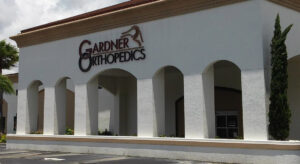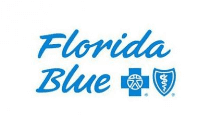By Gardner Orthopedics | Fort Myers, FL
Fatigue. Slower workouts. Reduced muscle mass. Mood changes. These aren’t just signs of getting older — they may be signs of low testosterone, a condition that affects millions of men, particularly over the age of 45.
At Gardner Orthopedics, we don’t just focus on joints and bones — we focus on the whole patient. That includes understanding how hormones like testosterone impact orthopedic health, recovery, and wellness outcomes.
What Is Testosterone, Really?
Testosterone is a hormone primarily produced in the testes, and it plays a central role in:
-
Building and maintaining muscle
-
Supporting bone density
-
Regulating fat distribution
-
Affecting mood, drive, and focus
-
Maintaining red blood cell production and libido
It peaks in early adulthood and then gradually declines — often beginning as early as age 30. But for many men, that decline becomes noticeable in their 40s or 50s, especially when paired with stress, poor sleep, weight gain, or chronic medical conditions.
“Testosterone isn’t just about strength or sexual health,” explains Dr. Ron Gardner, board-certified orthopedic surgeon at Gardner Orthopedics. “It’s closely tied to musculoskeletal health, energy levels, and how your body responds to physical stress or recovery.”
Symptoms of Low Testosterone
Low testosterone can present subtly or dramatically. Common symptoms include:
-
Muscle loss or inability to build muscle
-
Decreased stamina or endurance
-
Reduced libido or sexual performance
-
Depression or irritability
-
Brain fog or poor concentration
-
Loss of motivation
-
Weight gain, especially around the midsection
-
Frequent fatigue despite sleep
Many men chalk these symptoms up to aging — but they are treatable once identified.
The Link Between Testosterone and Orthopedic Health
Here in Fort Myers, where an active lifestyle is common well into one’s 60s and beyond, testosterone plays a crucial role in how men maintain mobility and recover from orthopedic injuries.
Low testosterone is associated with:
-
Decreased bone density → leading to higher risk of fractures
-
Slower healing after surgery or injury
-
Reduced response to physical therapy
-
Chronic joint pain due to muscle weakness and poor posture support
A study published in the Journal of Clinical Endocrinology & Metabolism (2020) found that men with low testosterone had significantly higher rates of osteoporosis and muscle wasting compared to those with normal hormone levels.
How It’s Diagnosed
At Gardner Orthopedics, testosterone levels can be evaluated as part of our Platinum Physical, a comprehensive health assessment that goes far beyond the basics.
Testing involves a simple blood draw — ideally done in the morning — and results are reviewed in the context of:
-
Age and baseline levels
-
Symptoms and physical findings
-
Other hormone or metabolic markers
Because testosterone levels naturally fluctuate, interpretation should always be done by a physician who understands the broader picture of men’s health.
Treatment Options
If low testosterone is confirmed, treatment may include:
-
Lifestyle modifications – Weight loss, improved sleep, and resistance training all help naturally raise testosterone levels.
-
Nutritional support – Key nutrients like zinc, magnesium, and vitamin D support hormone production and are often depleted in men with low T.
-
Testosterone replacement therapy (TRT) – In select patients, TRT may be recommended through patches, gels, or injections — always under close supervision.
Gardner Orthopedics may refer patients to trusted local endocrinologists or integrative medicine providers if medical management is indicated beyond our scope.
Supporting Testosterone with IV Therapy
Many patients benefit from Activation Medical IVs that support hormone health and cellular repair, including:
-
Amino acids to support lean muscle
-
B-complex vitamins for energy metabolism
-
Magnesium and zinc for testosterone regulation
-
Taurine and glutathione for cellular health and oxidative stress
These therapies are a great option for men who want to enhance their wellness from the inside out — especially when paired with orthopedic treatment or physical therapy.
A Real Example: “I Didn’t Realize How Bad I Felt”
One Gardner Ortho Patient, a 55-year-old retiree and avid golfer, came in complaining of hip stiffness and low energy. While orthopedic imaging revealed mild arthritis, further evaluation revealed low testosterone. After a combination of IV therapy, nutritional support, and lifestyle changes, his symptoms improved — not just physically, but mentally and emotionally too.
“I honestly didn’t know how much I had slowed down until I started feeling like myself again,” he shared during follow-up.
Take the Next Step
Testosterone may be a hormone, but its impact is whole-body. If you’re in your 40s, 50s, or beyond and feeling off — physically or mentally — it’s worth taking a closer look.
📞 Schedule a Platinum Physical or IV consultation today. Your future self will thank you.

About Gardner Orthopedics
Located in Fort Myers, Florida, Gardner Orthopedics is a patient-centered orthopedic and wellness clinic led by Dr. Ron Gardner, a board-certified orthopedic surgeon. The practice offers comprehensive services including orthopedic surgery, pain management, foot and ankle care, regenerative medicine, Activation Medical IVs, and Platinum Physicals — all designed to help you stay active and healthy at any age.
📍 3033 Winkler Ave. Ste. 100, Fort Myers, FL 33916
📞 Call: 1-239-277-7070
🌐 Visit: www.gardnerorthopedics.com
Local SEO Keyword Summary:
This article emphasizes keywords such as low testosterone Fort Myers, testosterone and men’s health Southwest Florida, hormone health and muscle recovery, testosterone testing in Lee County, IV therapy for men over 45, and Dr. Ron Gardner orthopedic wellness clinic.













